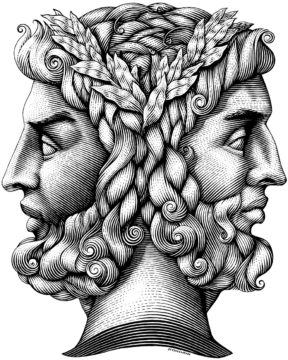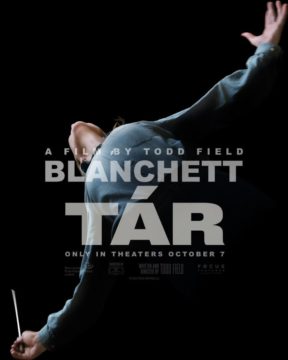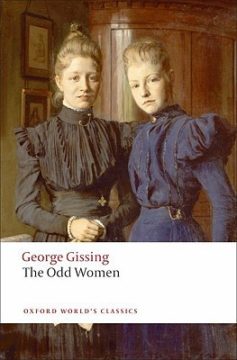by Chris Horner

A look forward, and backward, to some ‘cultural stuff’ for the coming year, old and new things worth seeing, hearing or reading. Here we go:
Tár.
Unless you have been cut off from all media in the last few months, you probably will have heard of this new movie from Todd Fields. Cate Blanchett plays Lydia Tár, star conductor in the Berlin Philharmonic. She has a lifestyle of the celebrity conductor and as wee see her prepare to record Mahler’s 5th symphony we also see her life beginning to fall apart. It turns out she is not immune to the temptations of power that go with the role of Maestro.
 Blanchett’s performance has been much praised, and it is indeed a tremendous thing: she must be near the head of the queue for an Oscar this year. It’s a great performance in a genuinely worthwhile and absorbing film. I don’t think it really expands our understanding of the themes it features: power and the exploitation young hopefuls by the (seemingly) all powerful star, the question of great art and flawed artists and so on, but it’s possible to come out of the movie thinking that it has. Blanchett’s performance has a lot to do with that. So a great performance in a very good rather than great film (assuming such categories can really be employed so neatly). Read more »
Blanchett’s performance has been much praised, and it is indeed a tremendous thing: she must be near the head of the queue for an Oscar this year. It’s a great performance in a genuinely worthwhile and absorbing film. I don’t think it really expands our understanding of the themes it features: power and the exploitation young hopefuls by the (seemingly) all powerful star, the question of great art and flawed artists and so on, but it’s possible to come out of the movie thinking that it has. Blanchett’s performance has a lot to do with that. So a great performance in a very good rather than great film (assuming such categories can really be employed so neatly). Read more »

 This is the kind of novel which when read makes you wonder why it isn’t better known and more widely celebrated. The late 19th century saw a wave of plays and novels dealing with ‘the New Woman’ – the educated, worryingly independent, vote-seeking, bicycling women of the late Victorian/Edwardian age. Examples include Victoria Cross’s Anna Lombard (1901), Ella Hepworth Dixon’s The Story of a Modern Woman (1894) Many of these were predictable rubbish: marriage or death solves everything. Exceptions among plays are Ibsen’s Hedda Gabler, Shaw’s Mrs Warren’s Profession, and among novels HG Wells’ Ann Veronica (1909), but it’s the Gissing that is really the winner among novels. Gissing avoids most of the cliches and stereotypes and produces a narrative that is genuinely absorbing and a set of themes and characters one remembers long after the book is put down. Gissing is an odd fish: he has real empathy for the plight of the poor and the rejected (both here and in The Nether World and his more famous New Grub Street), but has an ‘official’ conservative ideology which, when he lets it, blocks him from being able to imagine how the agency of working class or (as here) mainly lower middle class women might work for their liberation. In this he isn’t alone: many great novelists have said more through their literature than their ‘official’ beliefs ought to allow them to do (think of Dostoyevsky) In The Odd Women, he largely lets his imagination take him places his philosophy could never encompass. The book emerges as a fascinating account of the situation of the ‘superfluous’ women of the 1890s – and shows how they either succumbed to or overcame the world that seemed to have no place for them.
This is the kind of novel which when read makes you wonder why it isn’t better known and more widely celebrated. The late 19th century saw a wave of plays and novels dealing with ‘the New Woman’ – the educated, worryingly independent, vote-seeking, bicycling women of the late Victorian/Edwardian age. Examples include Victoria Cross’s Anna Lombard (1901), Ella Hepworth Dixon’s The Story of a Modern Woman (1894) Many of these were predictable rubbish: marriage or death solves everything. Exceptions among plays are Ibsen’s Hedda Gabler, Shaw’s Mrs Warren’s Profession, and among novels HG Wells’ Ann Veronica (1909), but it’s the Gissing that is really the winner among novels. Gissing avoids most of the cliches and stereotypes and produces a narrative that is genuinely absorbing and a set of themes and characters one remembers long after the book is put down. Gissing is an odd fish: he has real empathy for the plight of the poor and the rejected (both here and in The Nether World and his more famous New Grub Street), but has an ‘official’ conservative ideology which, when he lets it, blocks him from being able to imagine how the agency of working class or (as here) mainly lower middle class women might work for their liberation. In this he isn’t alone: many great novelists have said more through their literature than their ‘official’ beliefs ought to allow them to do (think of Dostoyevsky) In The Odd Women, he largely lets his imagination take him places his philosophy could never encompass. The book emerges as a fascinating account of the situation of the ‘superfluous’ women of the 1890s – and shows how they either succumbed to or overcame the world that seemed to have no place for them.